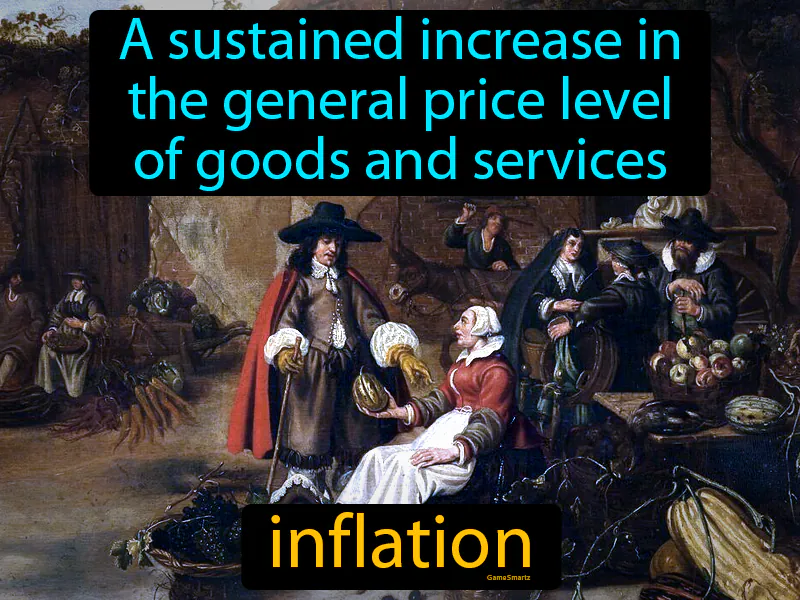Inflation
Inflation: Easy to understand
During the period of A New Nation from 1760 to 1800, inflation was a significant issue as the new United States struggled with the value of its currency. After the Revolutionary War, the government printed too much money, leading to a decrease in its value and rising prices for goods and services. This was important because it affected people's ability to buy necessities, causing economic instability and hardship. Today, inflation still matters because it influences the cost of living; for example, if inflation rises, the price of groceries or gas might increase, making it harder for families to afford everyday items. It can affect your family by requiring you to budget more carefully or seek higher wages to keep up with the rising costs.

Practice Version

Inflation: A sustained increase in the general price level of goods and services. Inflation. In simple terms, inflation is when prices go up over time, meaning money doesn't buy as much as it used to.